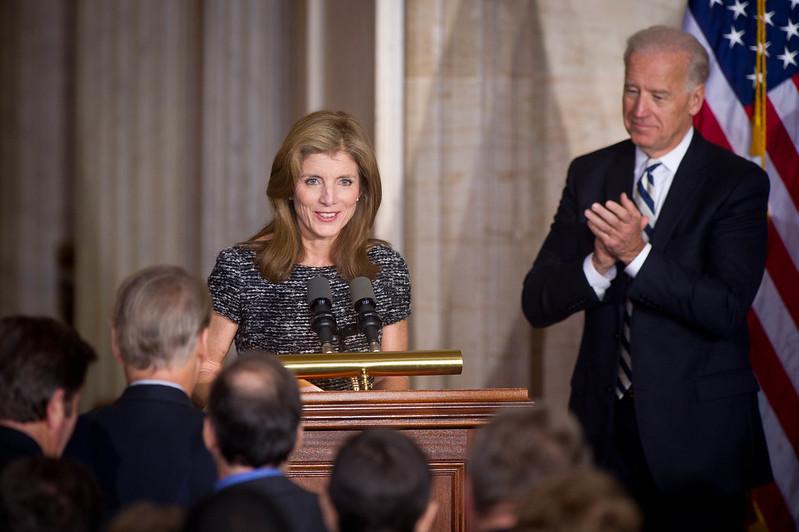
President Joe Biden has nominated Caroline Kennedy as the new US ambassador to Australia.
Her time as ambassador to Japan from 2013 to 2017 gives us insights into how she will approach the role here in Canberra. From that, we can expect she will bring a strong historical understanding, including in the areas of defence and national security, to her role. Critically, though, she will bring energy and a sense of purpose.
The next four years for Australia and the US is a time of activity and purpose. That’s true bilaterally, but it’s even more the case because our nations are in two hugely important, fast-moving ‘minilateral’ partnerships—the Quad of Australia, India, Japan and the US, and the AUKUS technology-acceleration partnership of Australia, the UK and the US.
Minilaterals like the Quad and AUKUS are the answer to two problems: large multilateral forums are unwieldy and slow, and even the most capable nation acting alone is less powerful than a combination of nations with shared purpose, resources and urgency.
Kennedy will understand this and already has a deep appreciation of the Quad because of her work with Japan’s former prime minister Shinzo Abe. Abe originated much of the thinking on the Indo-Pacific and the Quad that has become core Australian and US policy over the past few years. He remains an active thinker and voice on these issues, as we saw at ASPI’s Sydney Dialogue in November.
The ambassador-designate is an energetic and optimistic voice and mind, whether that’s on issues like democracy, innovation, climate change and nuclear non-proliferation or public health, innovation, space and renewable energy. These are all areas to which she brings experience and knowledge from her time in Japan. John Berry, ambassador to Australia while Kennedy was his counterpart in Japan, has said, ‘Ambassador Kennedy is the best face of America: resilient, optimistic, caring and very hard working.’
Kennedy is an articulate public speaker with a way of weaving personal and Kennedy family stories and history into topics. One example is her account of meeting the family of the Japanese destroyer captain who sank her father John F. Kennedy’s patrol boat during World War II. She quoted her dad’s inscription on a photo he gave the captain: ‘To Captain Hanami—late enemy, present friend’, saying it was ‘a powerful reminder that even during times of conflict, we have more in common than divides us’.
This will make her effective and well liked, as it will be obvious to Australians that Ambassador Kennedy is not just doing her job—she has a sense of purpose that matters.
Most importantly, though, Caroline Kennedy has the one absolutely critical attribute that any US ambassador to Canberra absolutely must possess: she can call the US president and he’ll pick up the phone.
Her predecessor, Arthur B. Culvahouse, had a direct line to Donald Trump, and both nations benefited in complicated times. Ambassador Kennedy will need to use this access in a different way: with AUKUS and the Quad, the Australia–US relationship is all about momentum, implementation, results and speed. So, Kennedy’s job will be spotting and removing roadblocks to success, and using her presidential access, political networks and public voice here in Australia, and back into the US, to do so.
Australia’s ambassador in Washington, Arthur Sinodinos, has this same access back into Prime Minister Scott Morrison’s office and the Lodge when he needs it.
The Kennedy–Sinodinos connection may prove to be a valuable partnership for trouble-shooting and opportunity-spotting in the deep bilateral weave that is the US–Australia strategic, technological, economic and people-to-people relationship. A conspiracy of activism for joint national benefit between these two ambassadors can make our respective bureaucracies uncomfortable, but it can also get things done that an Australian prime minister and US president want to happen.
Biden’s choice of Kennedy is a personal one, just like with his key and most influential staff and other appointees. We know that when Biden does this, it means he will trust and empower that person. For rapid implementation of the new AUKUS technology partnership with all that it can do for Australian, US UK and Indo-Pacific security, that’s a very powerful thing.
It looks like 2022 is starting well in the Australia–US relationship.